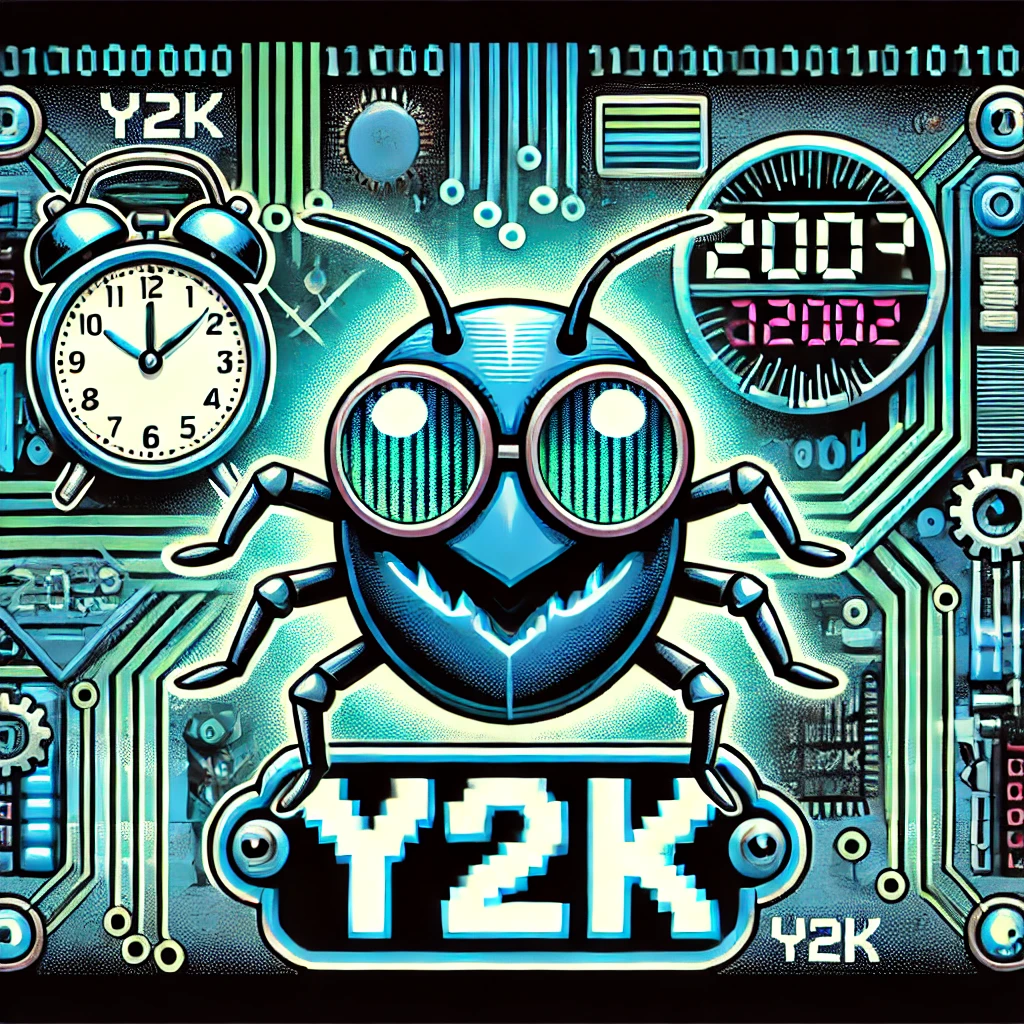A Reflection on Y2K and Optimism in Uncertain Times
As the clock ticks toward midnight on New Year’s Eve 2024, I find myself reflecting on a night exactly 25 years ago. December 31, 1999, was not just another New Year’s Eve. It was a moment steeped in anticipation, dread, and, for some of us, a quiet optimism that things might just turn out fine. Back then, I was working at Microsoft, spending the evening with my girlfriend (now my wife), waiting to see if the world as we knew it would unravel.
The Y2K Panic
For those who weren’t there, it’s hard to convey the anxiety surrounding Y2K. The crux of the issue was a programming quirk: many computer systems stored years using two digits instead of four, meaning 2000 would be read as “00,” potentially causing systems to crash, calculations to fail, and—if the more apocalyptic forecasts were to be believed—society to descend into chaos.
Banks could lose track of accounts. Power grids might fail. Airplanes might fall out of the sky. The fear of the unknown was palpable, and as the new millennium approached, many of us were glued to our screens, waiting to see if the world’s systems would survive the stroke of midnight.
My Y2K Experience
At Microsoft, we’d spent months preparing for Y2K. Teams worked tirelessly to audit code, patch vulnerabilities, and ensure that critical systems would function correctly. But as thorough as we were, there was always that nagging uncertainty: Had we missed something? Would the countless lines of code hold up under the weight of time itself?
So, there I was, in the office with my girlfriend, watching the minutes tick away. It was an odd mixture of romance and readiness. While most of the world partied, we huddled together, sharing snacks, sipping soda, and waiting for… well, we weren’t entirely sure. It wasn’t the most glamorous New Year’s Eve, but it was memorable—a mix of work, love, and quiet reflection.
Midnight Struck, and…
Nothing happened. The lights stayed on. The servers hummed peacefully. Airplanes didn’t plummet from the skies, and society carried on as though the threat of digital Armageddon had never existed. The collective sigh of relief was almost audible.
Looking back, it’s easy to chuckle at the overblown fears of Y2K. But it’s also a testament to the hard work and determination of countless people who ensured that the transition was smooth. The world didn’t end that night, and in many ways, it felt like a new beginning.
Lessons for Today
The Y2K experience taught me an important lesson: Not everything works out as people expect, and sometimes that’s a good thing. Fear of the unknown can paralyze us, but it can also motivate us to prepare, adapt, and innovate. And when things don’t go according to plan—whether for better or worse—we must find ways to move forward with optimism and resilience.
The world has faced plenty of dark times since that night, from economic crises to global pandemics. But just like we did in 1999, we find ways to navigate the uncertainty. Technology advances, communities come together, and humanity’s ability to endure shines through.
A Toast to Optimism
As we step into 2025, let’s remember the spirit of Y2K—not the fear, but the hope. Even when the future seems uncertain, we have the power to shape it through our actions, our connections, and our unwavering belief that tomorrow can be better than today.
So here’s to 25 years of progress, love, and unexpected outcomes. And to my wife, who sat beside me that night in 1999—thanks for being my partner through it all. The world didn’t end, and for that, I’ll always be grateful.
